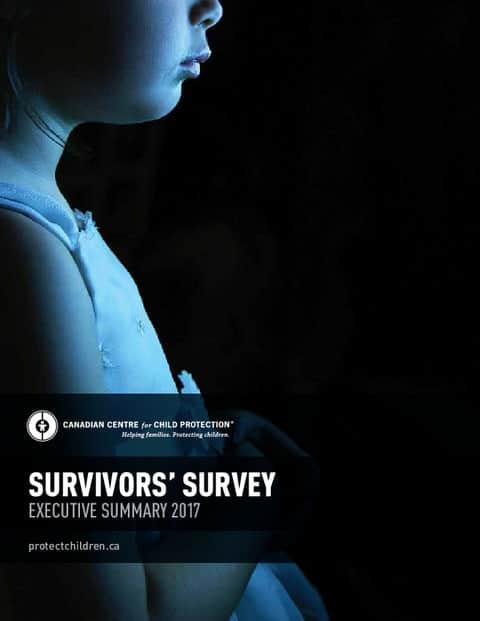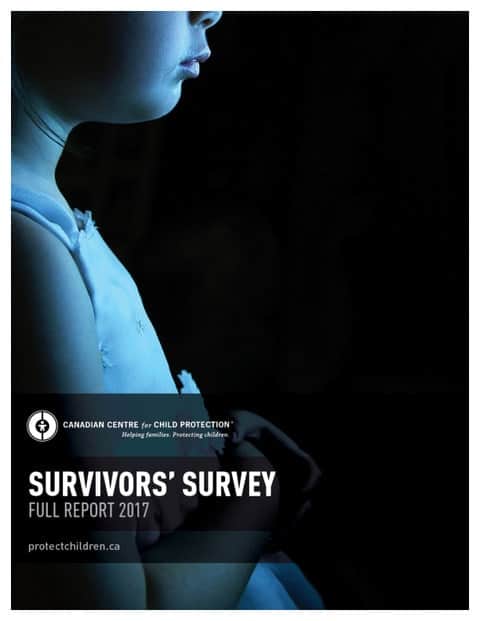You thanked me for taking the time to complete the survey, but I am so glad that there are people who start this survey and I hope it will give lots of information to help the children of today. So I would like to thank you for your work and I wish you all the best.
We are now running a shortened survey to reach more survivors and continue to learn from their experiences. Learn more.
International Survivors’ Survey
Auch auf Deutsch In het Nederlands En español
To better understand the unique challenges faced by survivors, C3P launched the first round of the International Survivors’ Survey in January 2016. Over the course of a year and a half, 150 survivors from around the world completed the comprehensive survey, contributing valuable details and information about their experience.
We recognize how incredibly difficult and challenging it may have been to complete the survey and we deeply appreciate that so many survivors took the time to share their story with us. We are re-running the survey now to reach more survivors as we continue to learn from their experiences.
I had to smile nicely and pretend I liked it just like those women in the movies because that was what the men who would get it wanted to see…. I just had to deliver what was asked from me. And that was the reason I quite soon understood it was meant for other people.
International Survivors’ Survey Results
In September 2017, C3P released results from the International Survivors’ Survey for now-adult survivors whose child sexual abuse was recorded and/or distributed online, with recommendations to address this horrific crime. Some of the results include:
- Almost 70% of the survivors worried about being recognized by someone because of the recording of their child sexual abuse. In fact, 30 respondents reported being identified by a person who had seen their child sexual abuse imagery.
- 58% of respondents reported having had more than one person abusing them, while 82% of the primary offenders involved in multiple offender scenarios were parents or extended family members of the child.
- 56% of the survivors indicated that the abuse began before the age of four, and 87% were 11 years of age or younger. 42% were abused for more than 10 years.
- At least 74 respondents (nearly 50%) were survivors of organized sexual abuse (abuse that involves children being subjected to sexual abuse by multiple offenders).
- 67% of the survivors were threatened with physical harm including being told they would die or be killed.
- 85% of the survivors anticipated needing ongoing/future therapy.
Learn More About What We Heard From Survivors
I remember being humiliated when my abuser showed another child (whom I liked) photos of my torture (with ropes). I wanted to hide these images because of the shame, so disclosure would have been nearly impossible. Disclosure would implicate me in what I believed was a crime for which I was at least partially responsible.
Recommendations for Change
The survey results underscore the urgent need for the international community to take immediate action and implement the following recommendations:
Reduce the availability of both new and existing child sexual abuse images and videos on the public internet. Consideration should be given to adopting Project Arachnid as the global platform for quickly detecting the presence of child sexual abuse material online and issuing takedown requests to hosting providers, notifying them of the presence of the content on their service and requesting immediate removal of the material.
Improve education and training on the issue of child sexual abuse among professionals to empower them to recognize and respond appropriately. Those in a position to uncover abuse must better understand the dynamics of different abuse situations, the complex process of disclosure, and the role of technology in facilitating child sexual abuse.
Strengthen the coordination and communication between all systems and entities that intersect with victims of child sexual abuse and online exploitation. This includes, but is not limited to, child welfare, schools, hotlines, therapists, police, industry, child-serving organizations, and advocacy centres.
Develop comprehensive systems and remedies to properly recognize the rights and unique needs of victims whose abuse was recorded. This includes accessible, knowledgeable therapists and attainable mechanisms for receiving financial compensation. Survivors must also be provided with the opportunity to have their voices heard within the criminal justice system (e.g., victim impact statements).
[The survey] was very good for me. It allowed me to actually tell people what I felt with no real barriers. It also gave me a sense of empowerment over some of what happened.
Message for Survivors of Child Sexual Abuse
If you are a survivor of child sexual abuse, please know that our team is working hard to make positive change happen for you and for future generations of survivors. We believe change is coming.
It is important that we share with the public the reality of what we are seeing and hearing from survivors, and what we are learning through our research and technical solutions. Given the importance of hearing directly from survivors and the uptake we have seen so far, our plan is to leave the survey open. We recognized that some survivors who had started their survey may still want to fully complete it and that others, who may be new to our site, may wish to contribute their voice as well. At C3P, we are committed to learning from your experiences and better understanding the unique challenges you have faced. Your voice can effect change.
Participate in the International Survivors’ Survey
If you feel taking the survey or reading the information in our International Survivors’ Survey report might be difficult for you or cause distress, we encourage you to reach out to supports in your community. This could include personal supports (family and friends) or professional supports (e.g., therapists, psychologists, psychiatrists, counselling, and crisis response agencies).
If you would like to speak to us directly about your experience, learn more about results or have questions about the survey, or would like to learn more about our work with survivors, connect with us here.

